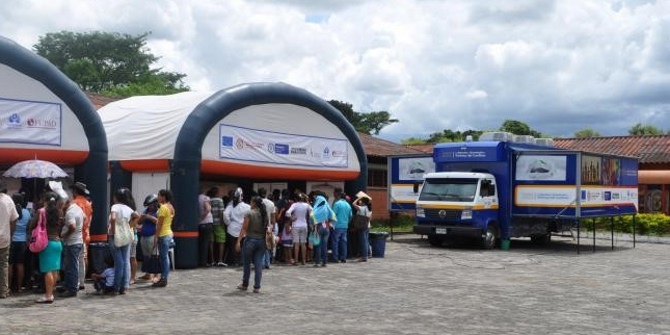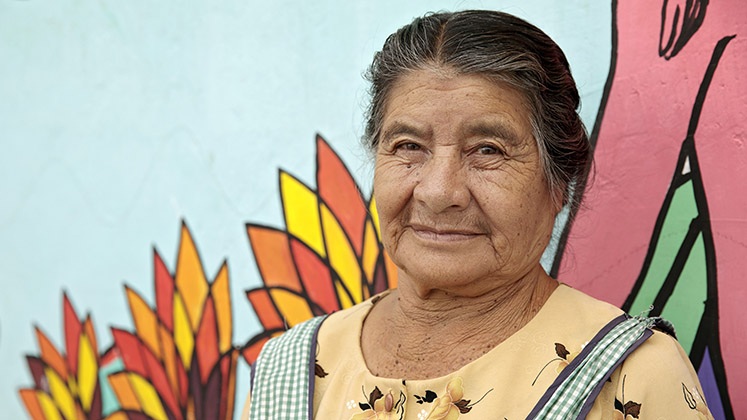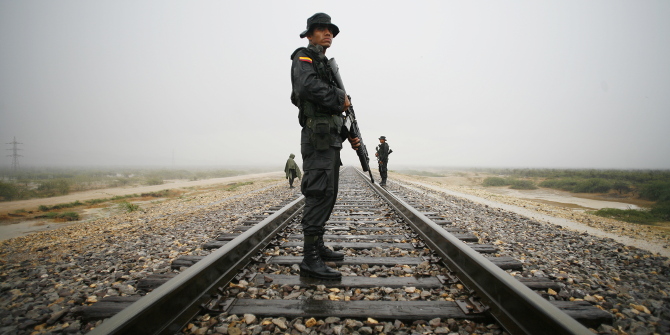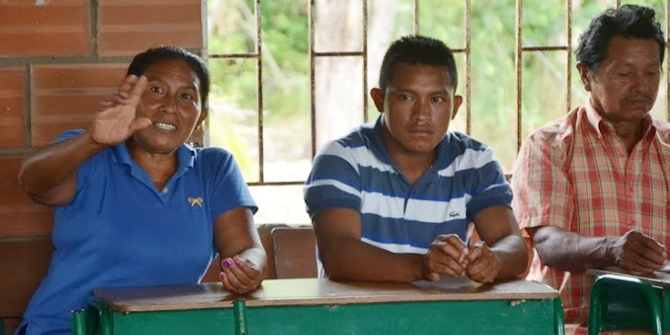Practising forgiveness contributes to developing personal skills and opens up horizons for the youth in a post-conflict scenario and the programme ES.PE.RE has had a positive impact on the mental health of their participants in a country where the offer of these services is scarce, write Sandra Jovchelovitch (LSE), María Cecilia Dedios (LSE) and Natalia Concha (LSE).
Lea este artículo en español
It has been five years since Colombia signed a peace deal between the government and its largest guerrilla group, the Revolutionary Armed Forces of Colombia (FARC-EP). Yet, peace in the country remains elusive. Among the multiple and multifaceted challenges still in the way of stable and sustainable peace, is the need to address the emotional wounds of the war plus the reparation of the social fabric in the communities most hit by the conflict.
The consequences of decades of armed conflict have not gone away for many individuals and communities. Forgiveness and reconciliation can be central pieces in the societal transition towards peace. They put in motion individual and intergroup processes oriented towards healing emotional wounds and repairing the social fabric. Forgiving those seen as perpetrators and reconciling across historical social divisions can help to revisit the pain of war, confront individual and social scars and build pathways towards a new, peaceful future.
The research project ‘Pathways to Reconciliation‘ studied the ES.PE.RE (an acronym for Schools for Forgiveness and Reconciliation). This is a non-clinical reflexive intervention that seeks to build pathways for forgiveness and reconciliation for people most affected by violent conflict. The ES.PE.RE draw on pedagogical and participatory methods to promote reflection and work through the memories and experiences of war. They integrate theoretical definitions of forgiveness and reconciliation with the lived experience of participants to re-signify pain and change ways of thinking about life stories. The aim is to provide alternative ways for people to re-signify narratives of offence(s) and move past feelings of revenge towards new stories and a culture of peace. Although there is some evidence suggesting that these programs work in societies like Colombia, there is little systematic knowledge about the impact of these interventions and even less is known about the sustainability of any potential impact over time.
The research, carried out in partnership between LSE Psychological and Behavioural Science , Fundación Santa Fe de Bogotá and Fundación para la Reconciliación sought to address this gap by focusing on the impact of the ES.PE.RE on the individual and social wellbeing of participants in seven municipalities in northern, central, and southern Colombia with Territorially Focused Development Programmes (PDETs, in Spanish). We worked with youth and adults using a mixed-method longitudinal research design that combined questionnaires, qualitative interviews, and ethnographic observation to evaluate mental health, social capital, and life trajectories of the participants before the intervention and for nine months after.
An intervention changing youth horizons
We found that the Schools for Forgiveness and Reconciliation are effective in improving mental health and can change how its participants think about their life trajectories and their future. Participants who were more oriented towards forgiveness had fewer symptoms of depression and insomnia across all communities we studied. This positive effect on depressive symptoms was comparable to some clinical interventions and remained stable for three months.
We also found that the intervention helped young people to expand their horizons about what they could become in the future. Young people demonstrate an acute awareness of the poverty, violence and inequalities that frame their future lives. However, their most frequent future-self expectations included getting an education and reaching a more satisfactory quality of life. They emphasise how context has a weight in their lives – ‘el peso del mundo’ – but, at the same time, display an intense motivation to thrive in life (ser alguien en la vida) and describe themselves as fighters who are aware of and know how to navigate their challenging environments.
A positive relationship to a future self is an important social-psychological indicator of life outcomes but young people living in territories of conflict experiment many future-self fears. We found that the most frequent ones revolve around deteriorated relationships due to unresolved conflict and self-evaluation of personal traits that may interfere with their future-oriented goals. ES.PE.RE helped young people address these challenges, strengthening their relationships with family members, mainly acquiring skills related to forgiveness.
We did not find a clear positive impact on social capital and more research is needed to understand why this is the case. However, we found that those presenting more depression and insomnia symptoms also tended to report less trust in others, less reciprocal actions, and adhered less to socially shared norms and values. This suggests an entanglement between individual and social wellbeing and invites us to think of the former as a necessary -although not sufficient- condition for the latter. If anything, our research shows that individual and societal change are deeply intertwined.
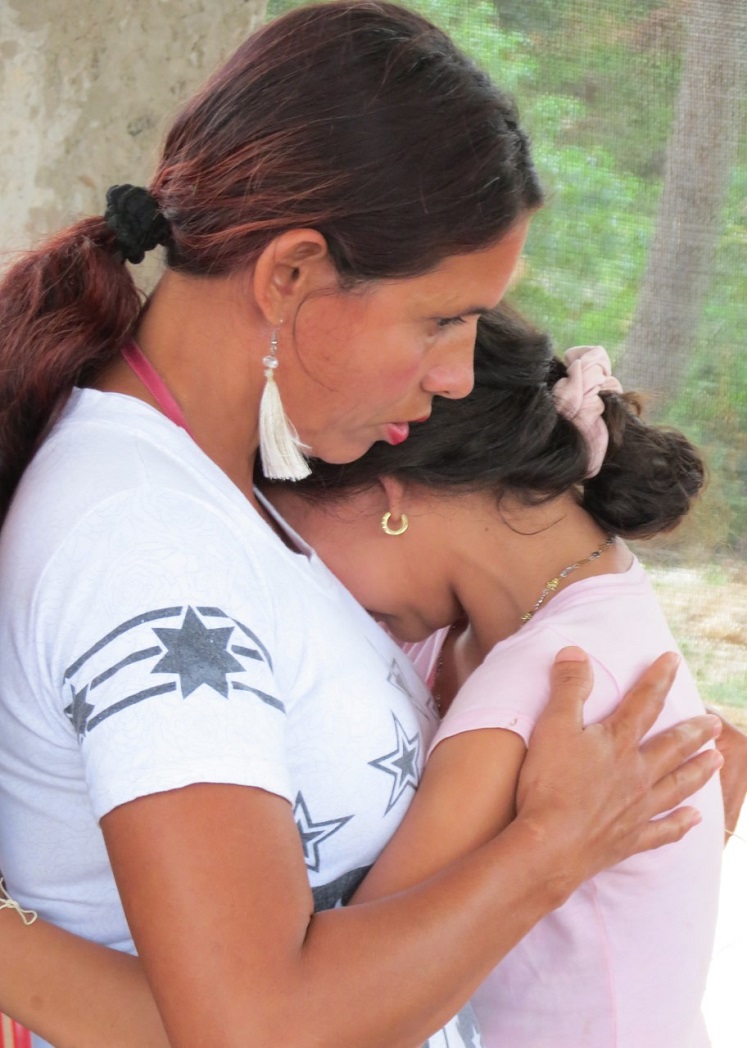
Overall, our study shows a positive effect of the ES.PE.RE on people’s mental health and life trajectories, mainly through the practice of forgiveness. It contributes to the development of personal and interpersonal skills and opens up future life horizons for young people. The ES.PE.RE are implemented by trained community members and do not require clinicians, a particularly relevant fact considering the scarce offer of mental health services in the areas most hardly hit by the Colombian political conflict.
ES.PE.RE helped young people address these challenges, strengthening their relationships with family members, mainly acquiring skills related to forgiveness.
Developing a culture of peace depends on the well-being of individuals and communities who have had the most intense experiences with armed conflict. An intervention like the ES.PE.RE works directly with the actors most neglected and most affected by these experiences. It tackles challenges at the core of Colombia’s struggle to transition towards peace: capacity to elaborate painful memories, heal wounds related to war and repair relationships between people. It contributes to building peace in Colombia by addressing the individual and interpersonal expressions of broader societal problems.
This study provides a powerful lesson about the importance of leveraging the power of local communities as the main drivers of solutions and policy-making. It also shows that by partnering effectively with local NGOs, academics gain access to otherwise understudied realities and populations that may be inaccessible to standard academic projects. Enabling grassroots insights and experiences to be known and systematised is essential for the Colombian context as well as for other developing post-conflict societies.
Notes:
• ‘Pathways to Reconciliation’ is an UKRI-Minciencias funded international research partnership that investigated the impact of the Schools for Forgiveness and Reconciliation on mental health, social capital, and life trajectories of people living in Colombian territories most affected by the armed conflict.
• The views expressed here are of the authors rather than the Centre or the LSE
• Please read our Comments Policy before commenting
• Banner image: Sebastian Delgado C / Shutterstock.com


